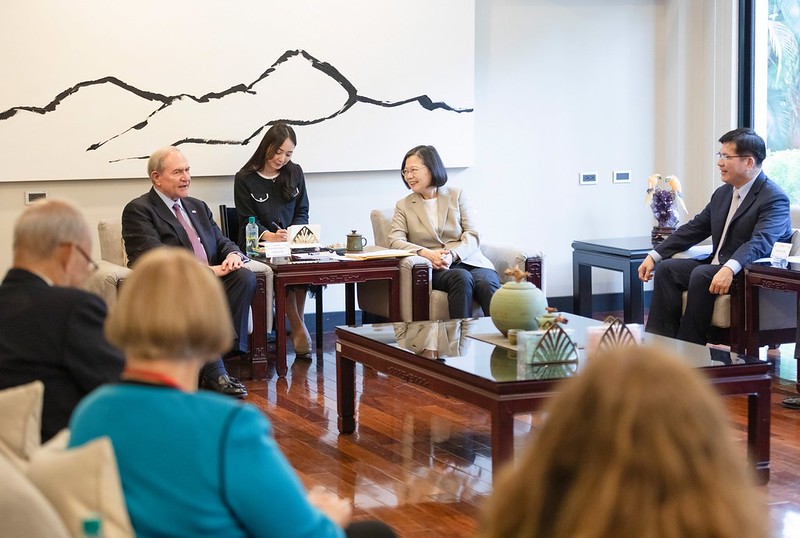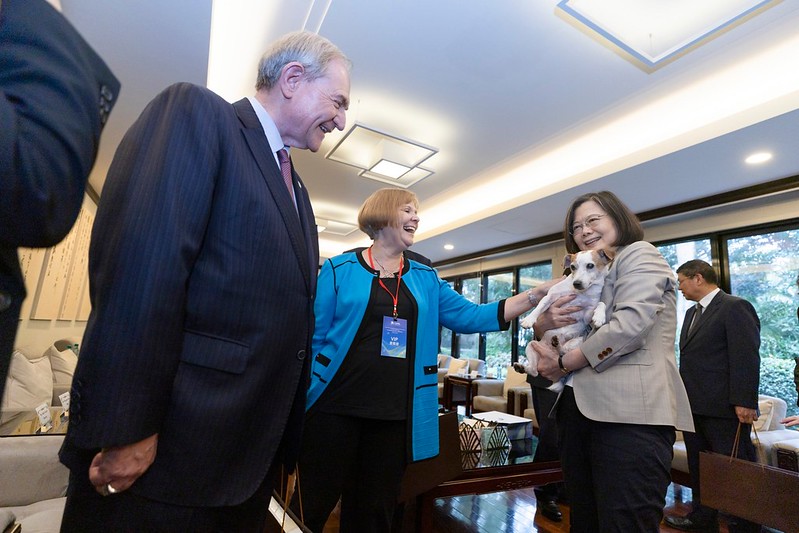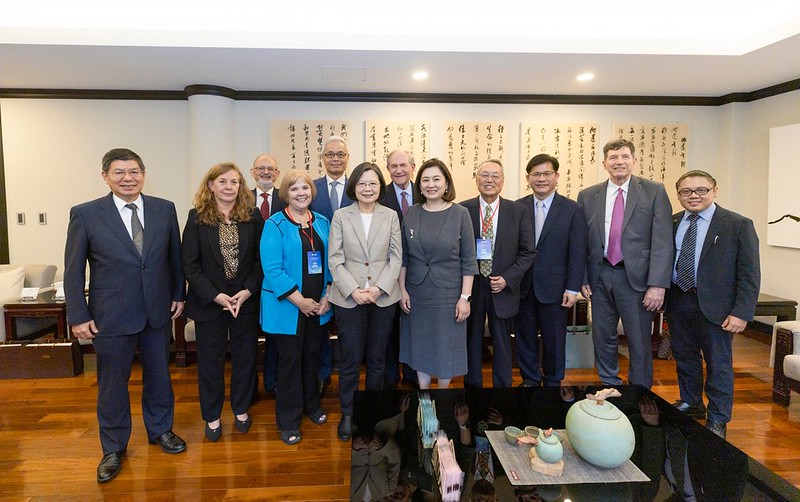News & activities
 News releases
News releases
On the afternoon of May 6, President Tsai Ing-wen met at her official residence with a delegation from the Center for Asia-Pacific Resilience and Innovation (CAPRI). In remarks, President Tsai pointed out that CAPRI is Taiwan’s first international think tank focused on public policy research, and that as authoritarian expansion is on the rise, the bridge built by CAPRI is more important than ever in helping Taiwan continue sharing its perspectives and increasing its visibility on the international stage. She expressed hope that, as CAPRI steadily expands its research scope, Taiwan will be able to draw even more broadly on international experience in domains such as the economy, public health, and sustainable development, and enhance our national resilience.
A translation of President Tsai’s remarks follows:
I would like to welcome to Taiwan our good friends from CAPRI. Board Chair Syaru Shirley Lin (林夏如), it is such a pleasure to see you again. And I warmly welcome back to Taiwan former Virginia Governor James S. Gilmore, who also served as US ambassador to the Organization for Security and Co-operation in Europe.
Our guests today are all prominent international figures representing key professional domains, and their visit is a symbol of the ever-deepening partnerships between Taiwan and other countries. Just this morning, CAPRI held its second Annual Forum. Leaders, experts, and representatives of civil society groups from the Asia-Pacific and beyond were once again invited to explore solutions for stimulating economic growth and enhancing disaster resilience within today’s dynamic global landscape.
I would like to take this opportunity to thank Chair Lin and all our guests for their efforts in actively helping Taiwan deepen its connections with the international community. CAPRI is Taiwan’s first international think tank focused on public policy research. It endeavors to share Taiwan’s perspective with the Asia-Pacific region as well as at important international venues while bringing international perspectives to Taiwan.
Authoritarian expansion is on the rise, making the bridge built by CAPRI more important than ever in helping Taiwan continue sharing its perspectives and increasing its visibility on the international stage. As CAPRI steadily expands its research scope, I hope that Taiwan will be able to draw even more broadly on international experience in domains such as the economy, public health, and sustainable development, and enhance our national resilience.
In closing, I thank you all for making the long trip to visit Taiwan. I am confident that with the support of CAPRI, Taiwan will be able to collaborate with even more like-minded countries to jointly advance global prosperity and development.











